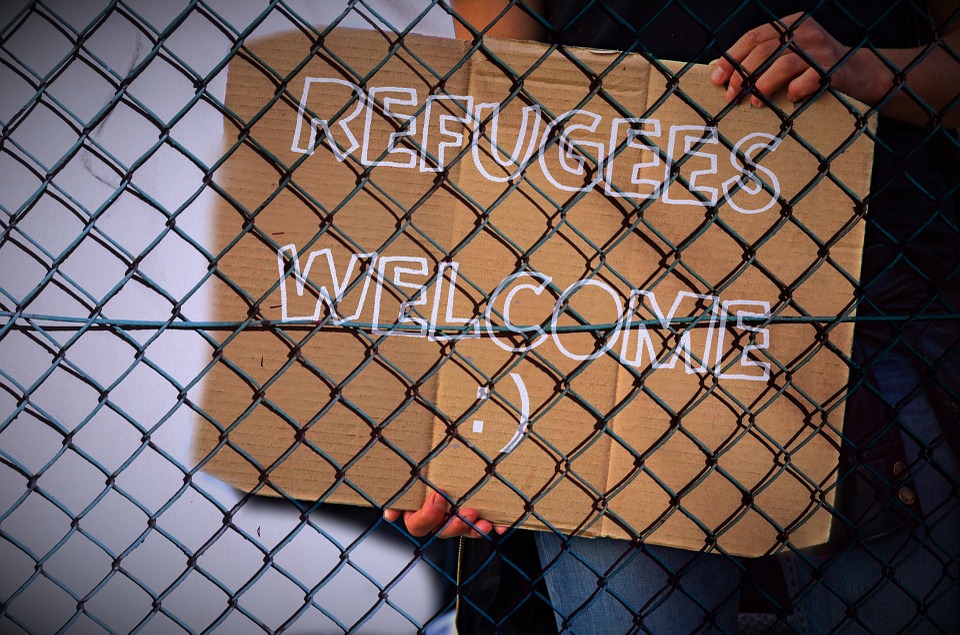Making Canada Accessible to Foreign Students Again
Canada’s Immigration Minister Plans to Implement Changes that Would Help International Students Obtain Permanent Residency
Last year’s Express Entry program was a mixed bag for immigration in Canada, and its effect on international students at Canadian colleges and universities has been particularly profound. This is in part because, for the last several years before the program had started in January of 2015, the Canadian Experience Class was working to make Canada a more attractive option for international students by opening up immigration channels intended to make permanent residency easier to attain after graduation. And for good reason—a person that has studied here has already put a lot of time and money into our country, knows one or both official languages, and is ready to enter the workforce, making them an objectively perfect candidate for residency. But after Express Entry was introduced, many students—even those applying with the help of immigration lawyers in Canada—have been finding it more difficult to obtain permanent resident status.
However, Canada’s new Immigration Minister, John McCallum, would like to see that change. According to him, we’ve been letting “the cream of the crop in terms of potential future Canadians” slip away, since the existing entry programs no longer favour students. This is because where students have had their own channels for immigration into Canada in the past—the Canadian Experience Class—in the new Express Entry system, they find themselves pooled together with other classes of immigrants, including the Federal Skilled Worker and Federal Skilled Trade Worker classes. Applicants from all of these classes will have their names drawn based on how well they meet the Express Entry criteria, and be given an Invitation to Apply (ITA). The program has seen some successes, particularly in fast-tracking the application process for those who are fortunate enough to be selected.
However, immigration lawyers in Canada have not been alone in noticing the marked shift in difficulty for international students hoping to apply. For them, Express Entry has become, at best, an added layer of beauracracy to work through. At worst, it’s been a death sentence for their hopes of becoming a permanent resident, since the chances of being selected from a pool of applicants from multiple classes is significantly lower.
If John McCallum and Citizenship and Immigration Canada make good on their decision to make permanent residency more attainable for international students again, the benefits could be felt not only by the students but by the country as a whole. Foreign students bring billions of dollars into our national economy while they study here, as well as diverse talents and skills. And for a student who has come to call Canada home during their studies, the chance to stay in our country and apply the skills they have learned here is often a wish come true.
Citizenship Lawyer Discusses Bill C-6
All Citizens Should Have Right to Fair Hearing—Not Only Those We Deem Worthy
As a multicultural society, Canada has strived to accept, respect, and celebrate the differences among its people. Some people are born here, making them a citizen by right of birth. Others are naturalised Canadian citizens—those who have demonstrated their commitment to becoming a part of our community and have been extended the right of citizenship. Does this distinction matter? Should it? Can we legitimately differentiate between these two types of citizenship? This is the issue that citizenship lawyers have been trying to resolve since this time last year, when Bill C-24 was passed.
The bill introduced the notion that dual citizens and naturalized citizens can lose their status without the right to a fair trial. Not only does this render their citizenship worthless—essentially amounting to conditional or second-class citizenship—but it violates section 15 of the Canadian Charter of Rights and Freedoms:
Every individual is equal before and under the law and has the right to the equal protection and equal benefit of the law without discrimination and, in particular, without discrimination based on race, national or ethnic origin, colour, religion, sex, age or mental or physical disability.
Prime Minister Trudeau’s introduction of Bill C-6, along with his going on record stating that, “A Canadian is a Canadian is a Canadian,” seems on the surface to indicate his agreement that there should only be one type of citizenship. However, although the bill would repeal elements of C-24 that allowed new citizens to lose their status without trial if suspected of participating in an army at war with Canada or another act of treason, it does not repeal the provision allowing the Minister of Immigration, Refugees and Citizenship to revoke the citizenship of any naturalized or dual citizen suspected of attaining their status by fraud. This is an issue any citizenship lawyer may find contentious.
There are questions that we should ask on this subject:
- Under what circumstances should citizenship be taken away?
- What factors should be considered before citizenship can be revoked?
- What kind of process needs to be in place?
- What rights should be afforded to individuals who are subject to this process?
- Who should be the decision-maker?
- And should there be a time limit for subjecting someone to this process?
Citizenship should not be arbitrarily and unfairly stripped away by the state without the benefits of due process conformity to the rights enshrined in our constitution. If Bill C-6 does not extend such rights, then it does not comply with the fundamentals of justice—and it could be argued that this makes it unconstitutional.
Before Bill C-24 was made into law last year, naturalized citizens had the right to be heard before the Federal Court. It was the job of an independent judge, not the Minister, to decide based on the available evidence whether or not fraud had been committed, and therefore, whether citizenship could be taken away.
Citizenship is no small thing, and revoking it is an act with tremendous implications. As such, it should be handled with the appropriate considerations, and may only be legitimately done through an open and fair process, with the benefit of an oral hearing before a judge of the Federal Court, and in accordance with the Charter of Rights and Freedoms. Canadian citizenship lawyers believe that to maintain the fundamental value of citizenship, the government’s law-making process must be guided by Canada’s Constitutional principles, rights, and values.
Canada Meets Its 25,000 Refugee Goal
Immigration Lawyer in Canada Discusses Arrival of Syrian Refugees
Pictures of a three-year-old Syrian boy who drowned while his family made a dangerous journey to seek refuge shocked the world in September. Canadians were so moved by the images that many organized to help fund and foster Syrian refugee families, while the newly-elected Trudeau government pledged to aid and resettle more refugees. An immigration lawyer in Canada understands the importance of community support for refugee families.
Less than four months after Canada began its mission to resettle Syrian refugees en masse, the country has met its goal of resettling 25,000 refugees. Although the new Liberal government first wanted to resettle these refugees by the end of the year in 2015, the logistics were not feasible for such a short period of time. Instead, the revised timeline promised resettlement by the end of February 2016, a goal that was achieved as of March 1st.
At a time when certain other countries, particularly in Europe, are closing their borders to immigrants and refugees, it is important that Canada is setting an example to the rest of the world. A community outpouring of care and support is providing refugee families with stability and safety as they begin to build a new life in their Canadian homes.
Canadian immigration lawyers know that although the 25,000 goal has been met, there will be more to come as Canada resettles more individuals and families in the coming months. The task of finding jobs and additional support is only just beginning as the government plans to resettle a total of 35,000 to 50,000 Syrians by the end of 2016, of which 25,000 will be government-sponsored. The remaining spots will be filled by privately-sponsored refugees or those arriving through the blended system.
As many families settle in major cities such as Ottawa, Toronto, and Montreal, there are challenges to be met including housing, education, health, and mental health care. Canadians prove to be thoughtful hosts and neighbors as communities have come together to collect necessities for surviving our harsh winters, such as heavy coats and boots, while also generously funding up to 10,000 individuals through private sponsorship to resettle families. It’s financial generosity like this that Canadian immigration lawyers say has helped keep the government under budget for this refugee initiative.
A single image moved Canada to welcome refugees fleeing their home in Syria. Canadians are now ready to support, befriend, and care for individuals and families as they resettle and heal during this difficult time.
Spouses of Canadian Citizens to Be Awarded Permanent Residency
A Canadian Immigration Lawyer Explains an Upcoming Change to Immigration Rules
Immigration Minister John McCallum recently announced upcoming changes to Canada’s Immigration rules for spouses of Canadian residents. These changes, which are scheduled to be implemented in coming months, will allow the foreign sponsored spouses of Canadians to become permanent residents as soon as they arrive in Canada.
Canadian immigration lawyers explain that under the existing system, these foreign spouses receive conditional permanent residency status once they arrive in the country. They then have to wait two years before being granted full permanent resident status. Though their rights and entitlements are largely the same as regular permanent residents during this period, residency can be revoked if the relationship breaks down.
This rule was introduced by the Conservative government in 2012 to address issues of marriage fraud and “marriages of convenience”. While there is some evidence that the introduction of conditional permanent resident status was effective in counteracting marriage fraud, Canadian immigration lawyers have also expressed concerns that the system has prevented people from leaving abusive or dangerous relationships for fear of having their residency revoked.
Since Mr. McCallum was appointed Immigration Minister in November 2015, a large number of Liberal MPs, especially those in ridings with large visible-minority populations, have requested that he amend current processes in order to speed up the review of family sponsorship applications, which can currently take up to two years. For many of these MPs, whether Liberal, Conservative, or otherwise, issues relating to immigration, refugees, and citizenship account for a large per cent of their day-to-day constituency work. Canadian immigration lawyers agree that amending these processes would likely improve these issues.
Under Canada’s amended immigration rules, Citizenship and Immigration Canada has committed to speeding up these processing times. In addition, once they are implemented, sponsored spouses will no longer have to wait for two years to receive permanent resident status, and will instead receive it upon their arrival in Canada. Immigration lawyers note that anyone who previously used the spousal program–whether they sponsored someone, or were sponsored themselves–will be prohibited from using it again for five years; this guideline is being retained from the 2012 rules.
A Question for Canadian Immigration Lawyers: Will the Arrival of Syrian Refugees Result in the Acceptance of Fewer Economic Immigrants?
The issue analyzed by your local refugee law office
Recent discussions in the media raised the question whether the arrival of Syrian refugees is negatively affecting the intake of other Canadian immigrants. It’s an issue Canada immigration lawyers and refugee law offices are frequently confronted with. Let us examine some key considerations:
2016 immigration targets
In its 2016 Immigration Levels Plan, the Government of Canada announced that it is welcoming 280,000 to 305,000 new permanent residents this year, with a target of 300,000. That total number is further divided into economic immigrants (151,200 to 162,400), family sponsored immigrants (75,000 to 82,000) and a third bucket (53,800 to 60,600) that encompasses refugees, protected persons, humanitarian and others. This makes Canada’s Trudeau government the first to welcome 300,000+ new immigrants a year since 1913.
Trade-offs?
As immigration lawyers in Canada can confirm, the immigration total has been increased for 2016, compared to previous years. However, Immigration Minister John McCallum has been quoted to admit that the expected arrival of additional Syrian refugees may result in cutbacks for the other immigration groups. Trade-offs are to be expected, but refugee law offices are not concerned. For example, this year’s target number for Resettled Refugees has been set at 44,800. However, 19,000 Syrian refugees were already resettled by the Canadian government in just January and February of this year. This is still a small number in comparison to the thousands of immigrants accepted by our country every year.
Concerns?
Canada immigration lawyers should not be that a further rise in refugee immigrants will negatively affect the 2016 number of economic immigrants. The overall number of economic immigrants that Canada will welcome has increased, a fact welcomed by all refugee law offices. When we look at the number of economic immigrants, the Conservative government had set the 2015 target at 186,700 whereas this number sits at just 160,600 for 2016. This may be a bit lower but it does not give rise to a significant concern. In any case, the refugees accepted by Canada will also contribute positively to Canada’s economy and they too, along with their children, will in turn become permanent residents.
This is a topic that you may wish to discuss further with your local refugee law office. Contact your trusted immigration lawyer for your specific refugee and immigration needs today.




